Management > QUESTIONS & ANSWERS > WGU - C483 Principles of Management 2021/2022 (Full) (All)
WGU - C483 Principles of Management 2021/2022 (Full)
Document Content and Description Below
WGU - C483 Principles of Management 2021/2022 (Full) Conceptual and decision skills ✔✔Skills pertaining to the ability to identify and resolve problems for the benefit of the organization and i... ts members. Controlling ✔✔The management function of monitoring performance and making needed changes. Cost competitiveness ✔✔Keeping costs low to achieve profits and be able to offer prices that are attractive to consumers. Emotional intelligence ✔✔The skills of understanding yourself, managing yourself, and dealing effectively with others. Frontline managers ✔✔Lower-level managers who supervise the operational activities of the organization. Innovation ✔✔The introduction of new goods and services. Interpersonal and communication skills ✔✔People skills; the ability to lead, motivate, and communicate effectively with others. Knowledge management ✔✔Practices aimed at discovering and harnessing an organization's intellectual resources. Leading ✔✔The management function that involves the manager's efforts to stimulate high performance by employees. Management ✔✔The process of working with people and resources to accomplish organizational goals. Middle-level managers ✔✔Managers located in the middle layers of the organizational hierarchy, reporting to top-level executives. Organizing ✔✔The management function of assembling and coordinating human, financial, physical, informational, and other resources needed to achieve goals. Planning ✔✔The management function of systematically making decisions about the goals and activities that an individual, a group, a work unit, or the overall organization will pursue. Quality ✔✔The excellence of your product (goods or services). Service ✔✔the speed and dependability with which an organization delivers what customers want. Social capital ✔✔Goodwill stemming from your social relationships. Speed ✔✔Fast and timely execution, response, and delivery of results. Sustainability ✔✔The effort to minimize the use of resources, especially those that are not polluting and nonrenewable. Technical skill ✔✔The ability to perform a specialized task involving a particular method or process. Top-level managers ✔✔Senior executives responsible for the overall management and effectiveness of the organization. Value ✔✔The monetary amount associated with how well a job, task, good, or service meets the user's needs. Barriers to entry ✔✔Conditions that prevent new companies from entering an industry Benchmarking ✔✔The process of comparing an organization's practices and technologies with those of other companies Buffering ✔✔Creating supplies of excess resources in case of unpredictable needs Competitive environment ✔✔The immediate environment surrounding a firm; includes suppliers, customers, rivals, and the like Competitive intelligence ✔✔Information that helps managers determine how to compete better Cooperative strategies ✔✔Strategies used by two or more working organizations working together to manage the external environment Defenders ✔✔Companies that stay within a stable product domain as a strategic maneuver Demographics ✔✔Measures of various characteristics of the people who make up groups or other social units Diversification ✔✔A firm's investment in a different product, business, or geographic area Divestiture ✔✔A firm selling one or more businesses Domain selection ✔✔Entering a new market or industry with an existing expertise Empowerment ✔✔The process of sharing power with employees, thereby enhancing their confidence in their ability to perform their jobs and their belief that they are influential contributors to the organization Environmental scanning ✔✔Searching for and sorting through information about the environment Environmental uncertainty ✔✔Lack of information needed to understand or predict the future External environment ✔✔All relevant forces outside a firm's boundaries, such as competitors, customers, the government, and the economy Final consumer ✔✔Those who purchase products in their finished form Flexible processes ✔✔Methods for adapting the technical core to changes in the environment Forecasting ✔✔Method for predicting how variables will change the future Independent strategies ✔✔Strategies that an organization acting on its own uses to change some aspect of its current environment Inputs ✔✔Goods and services organizations take in and use to create products or services Intermediate consumer ✔✔A customer who purchases raw materials or wholesale products before selling them to final customers Macroenvironment ✔✔The general environment; includes governments, economic conditions, and other fundamental factors that generally affect all organizations Merger ✔✔One or more companies combining with another Open systems ✔✔Organizations that are affected by, and that affect, their environment Organizational climate ✔✔The patterns of at [Show More]
Last updated: 2 years ago
Preview 1 out of 40 pages
.png)
Buy this document to get the full access instantly
Instant Download Access after purchase
Buy NowInstant download
We Accept:

Also available in bundle (1)
.png)
WGU C483 BUNDLED EXAMS QUESTIONS AND ANSWERS WITH COMPLETE SOLUTIONS
WGU C483 BUNDLED EXAMS QUESTIONS AND ANSWERS WITH COMPLETE SOLUTIONS
By Nutmegs 2 years ago
$16
12
Reviews( 0 )
$10.00
Can't find what you want? Try our AI powered Search
Document information
Connected school, study & course
About the document
Uploaded On
Sep 29, 2022
Number of pages
40
Written in
Additional information
This document has been written for:
Uploaded
Sep 29, 2022
Downloads
0
Views
136

.png)

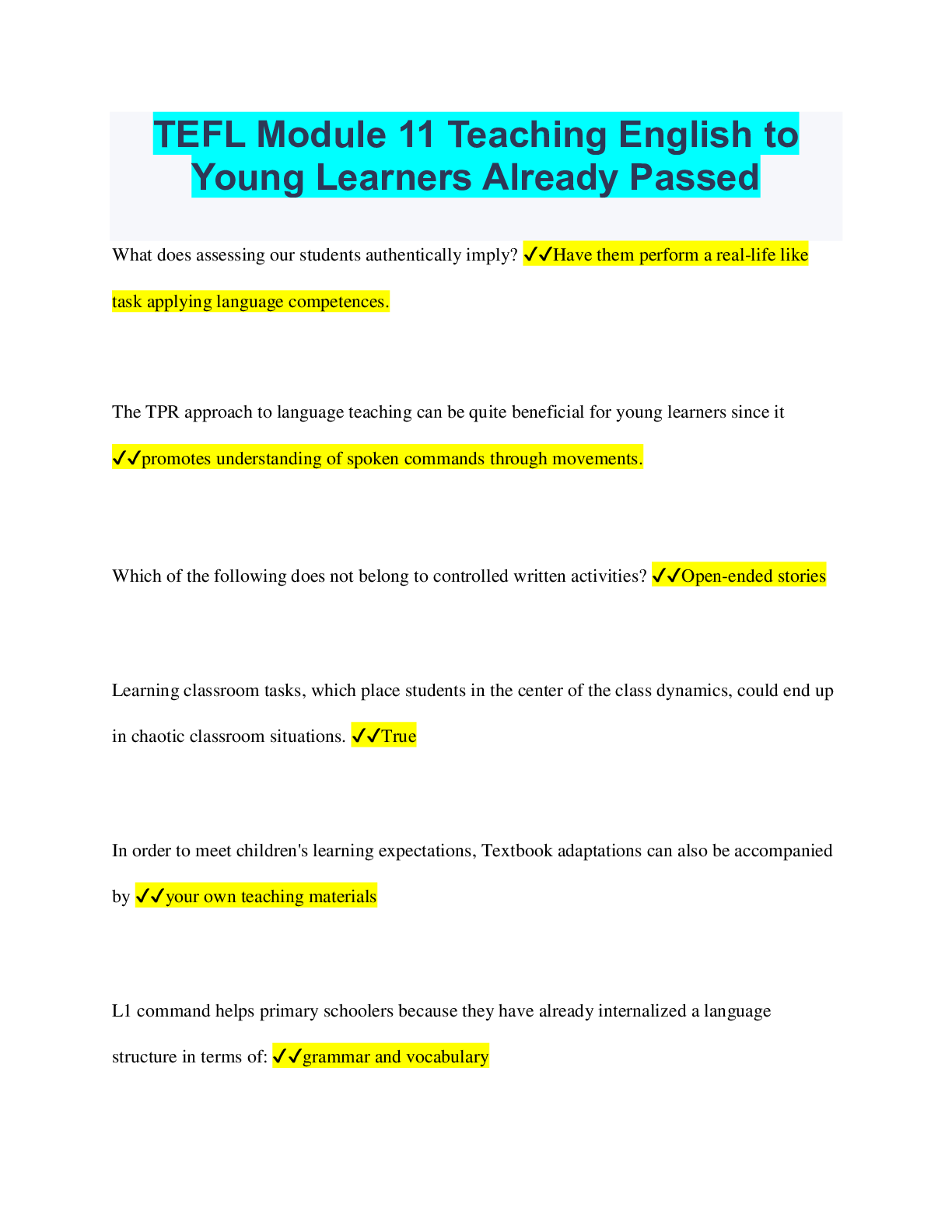
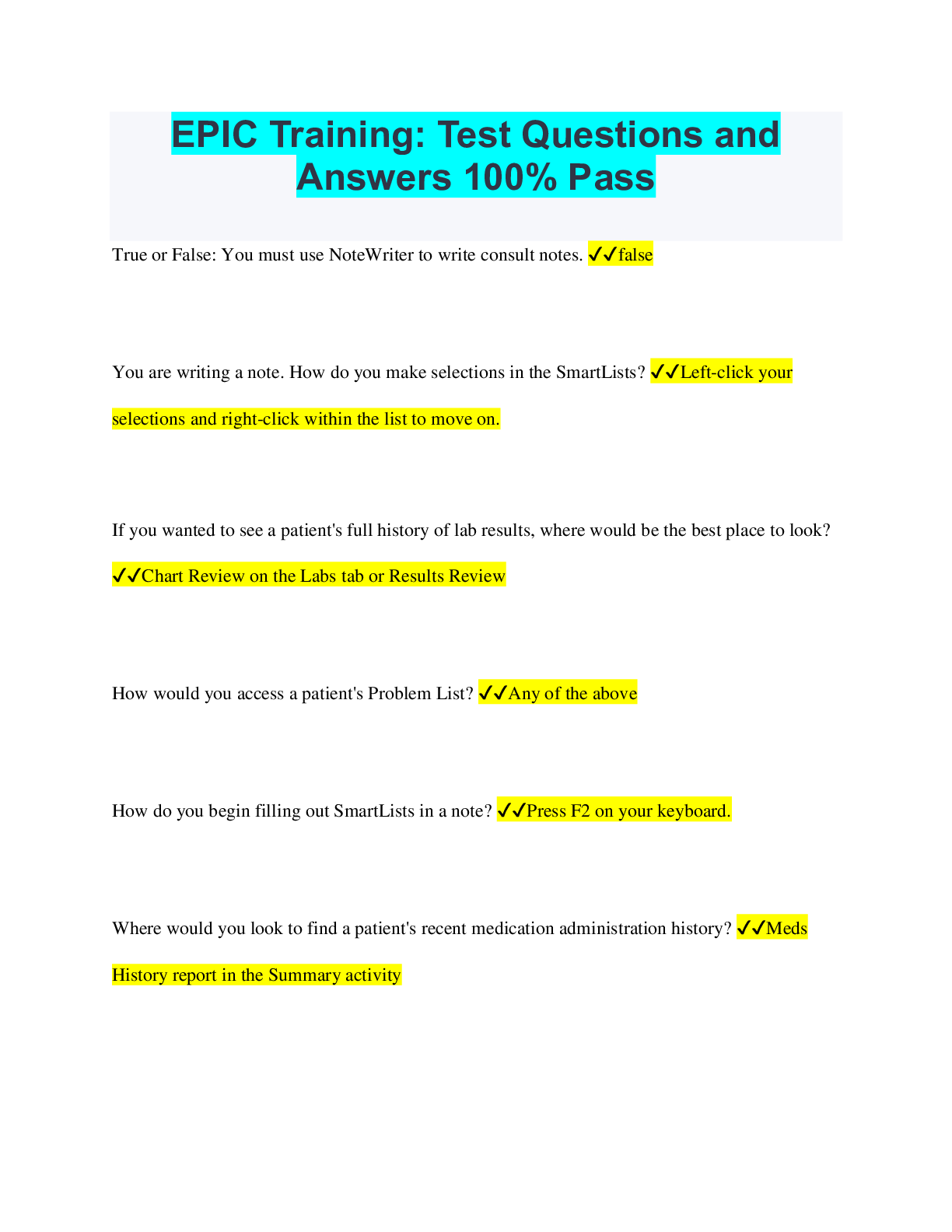
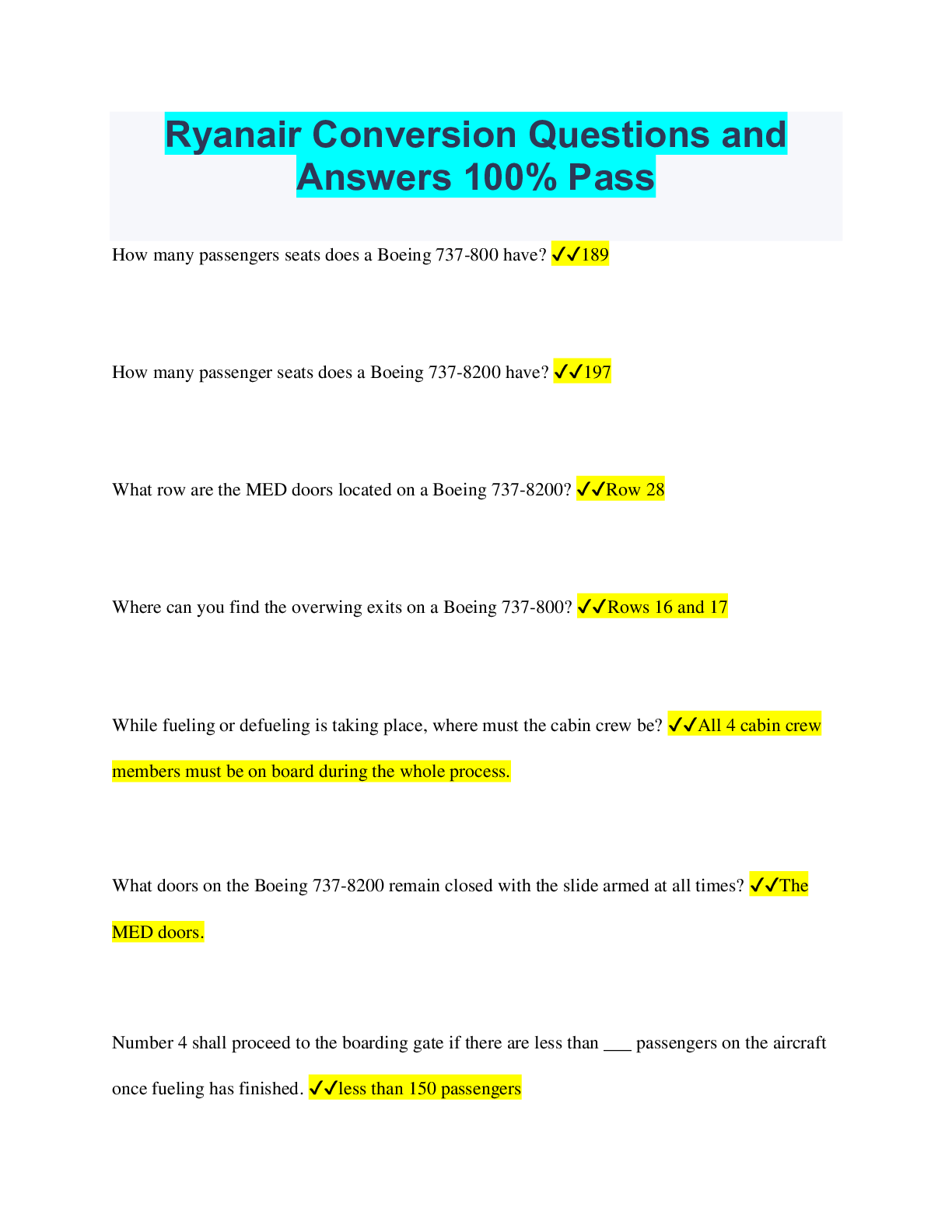
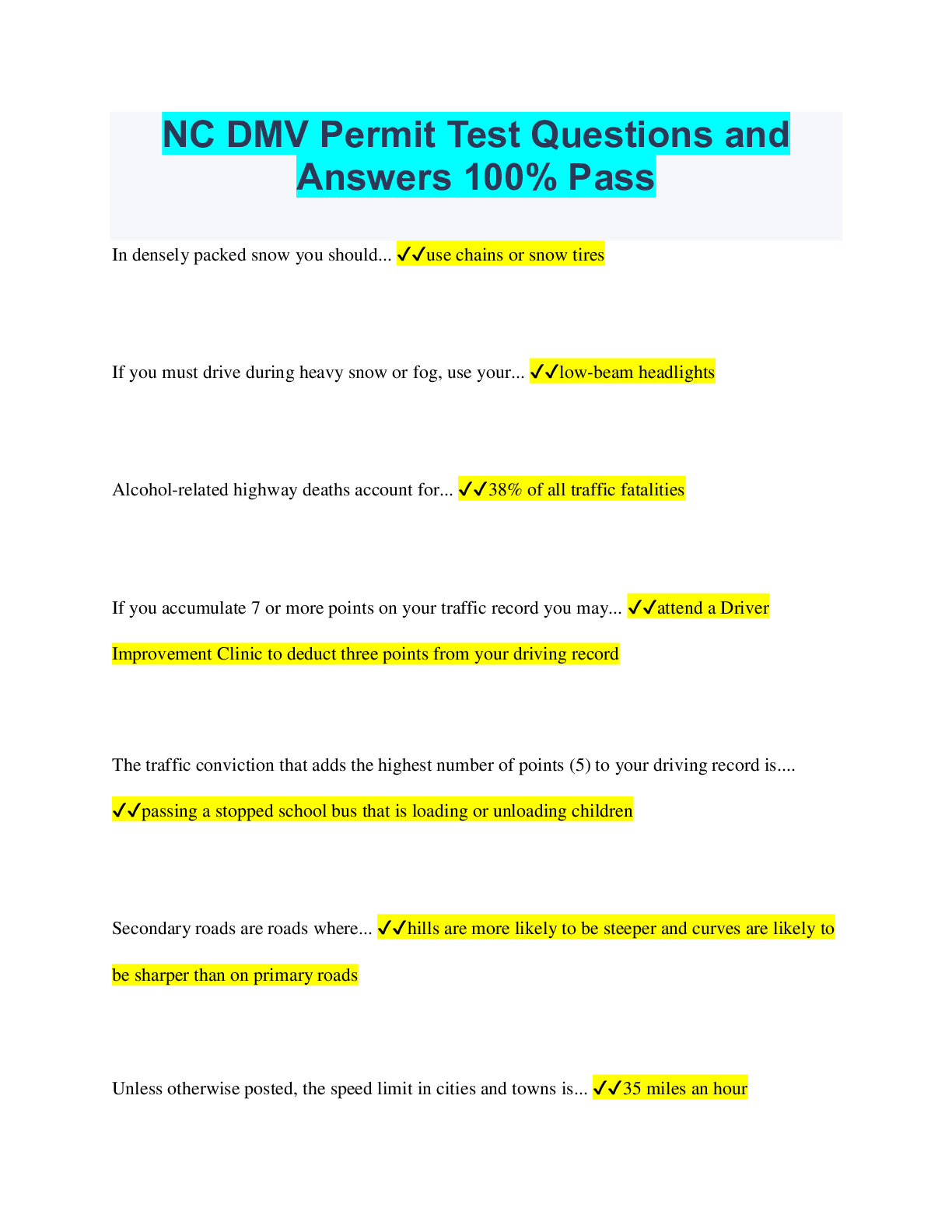
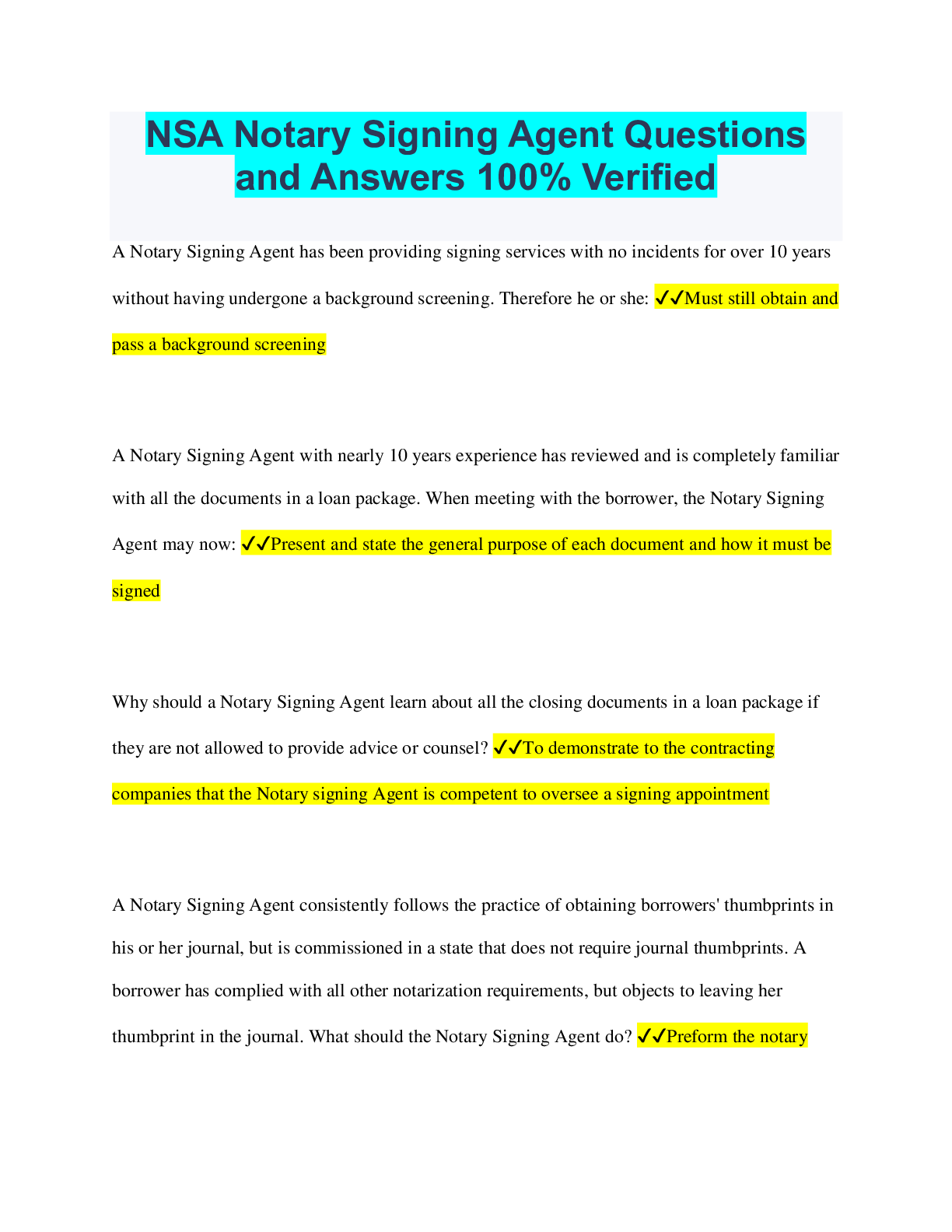
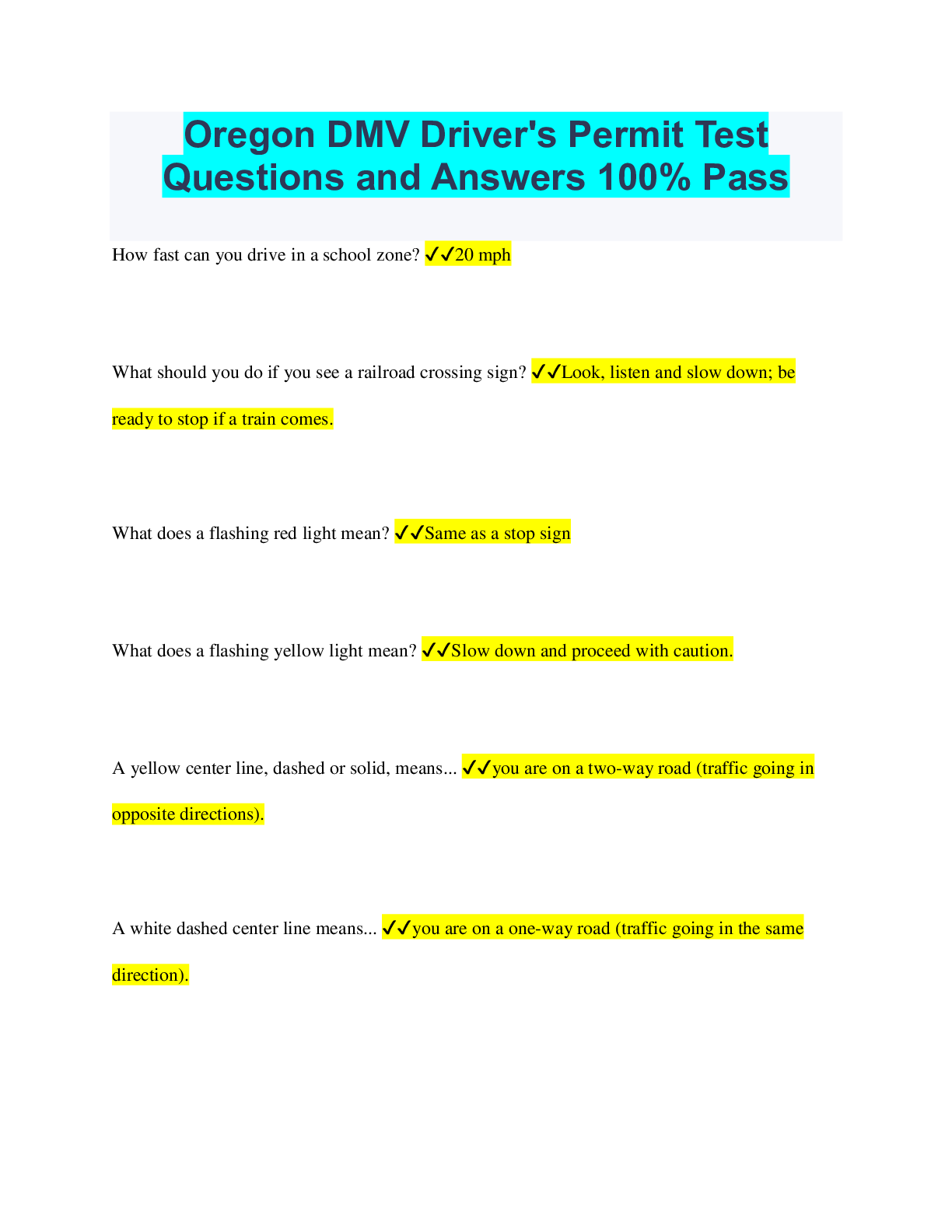
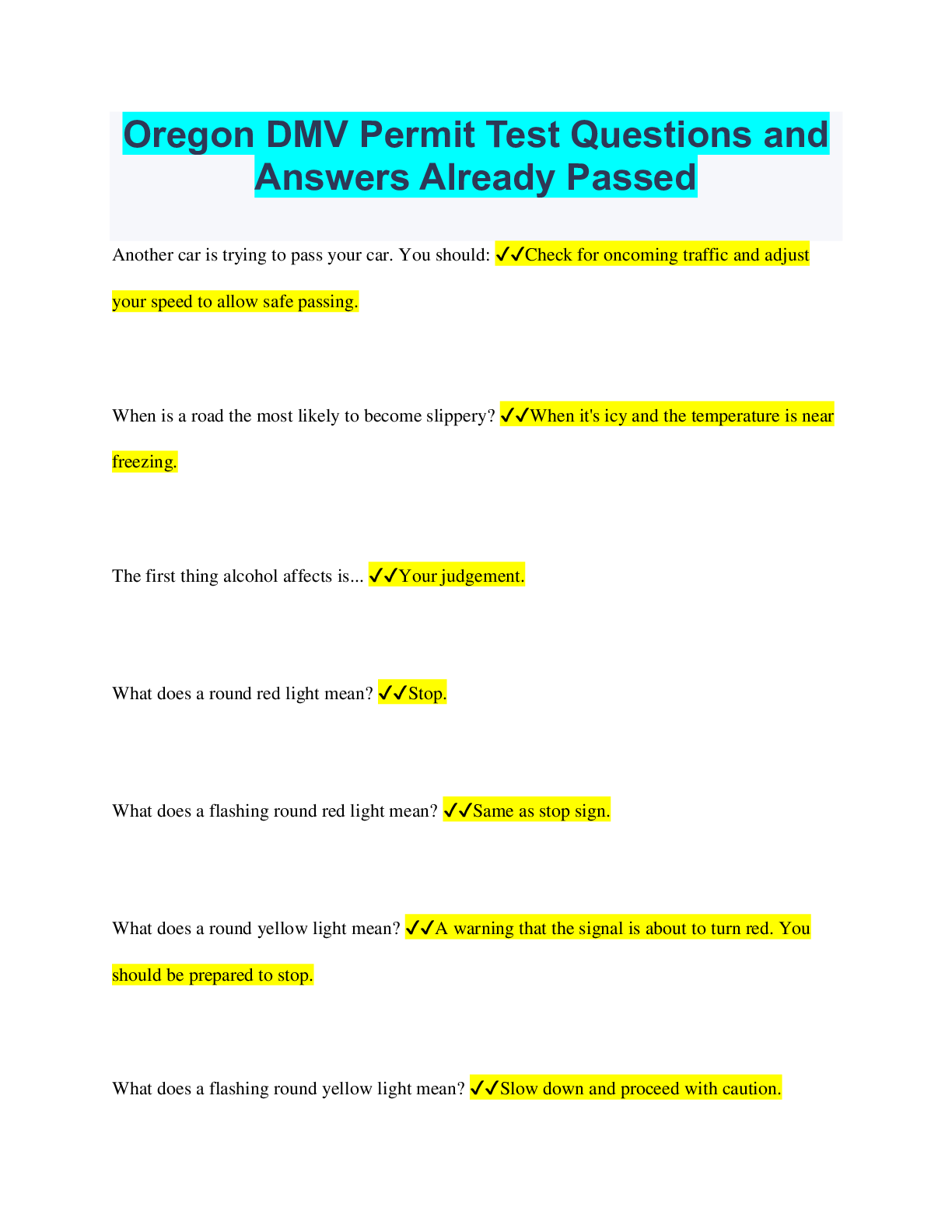
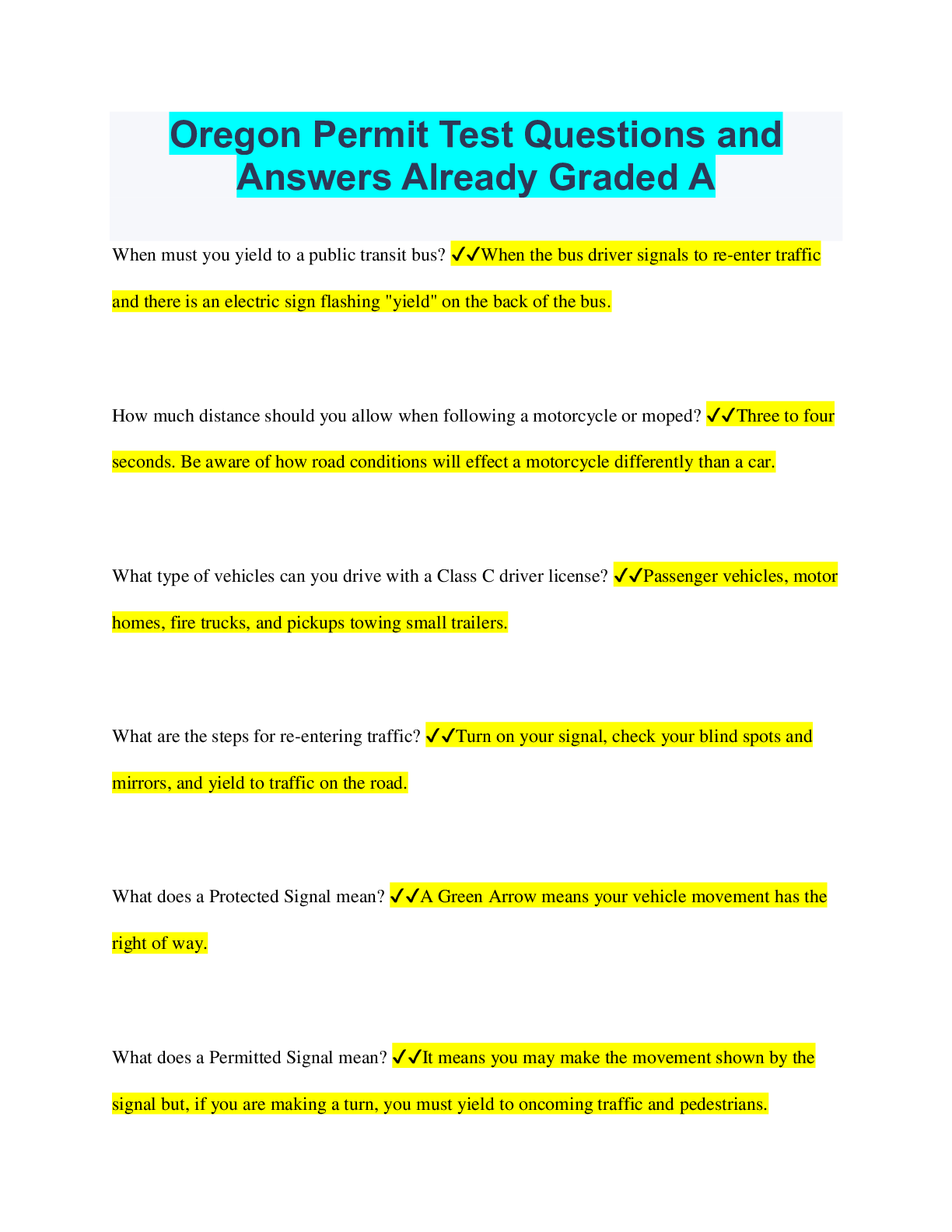
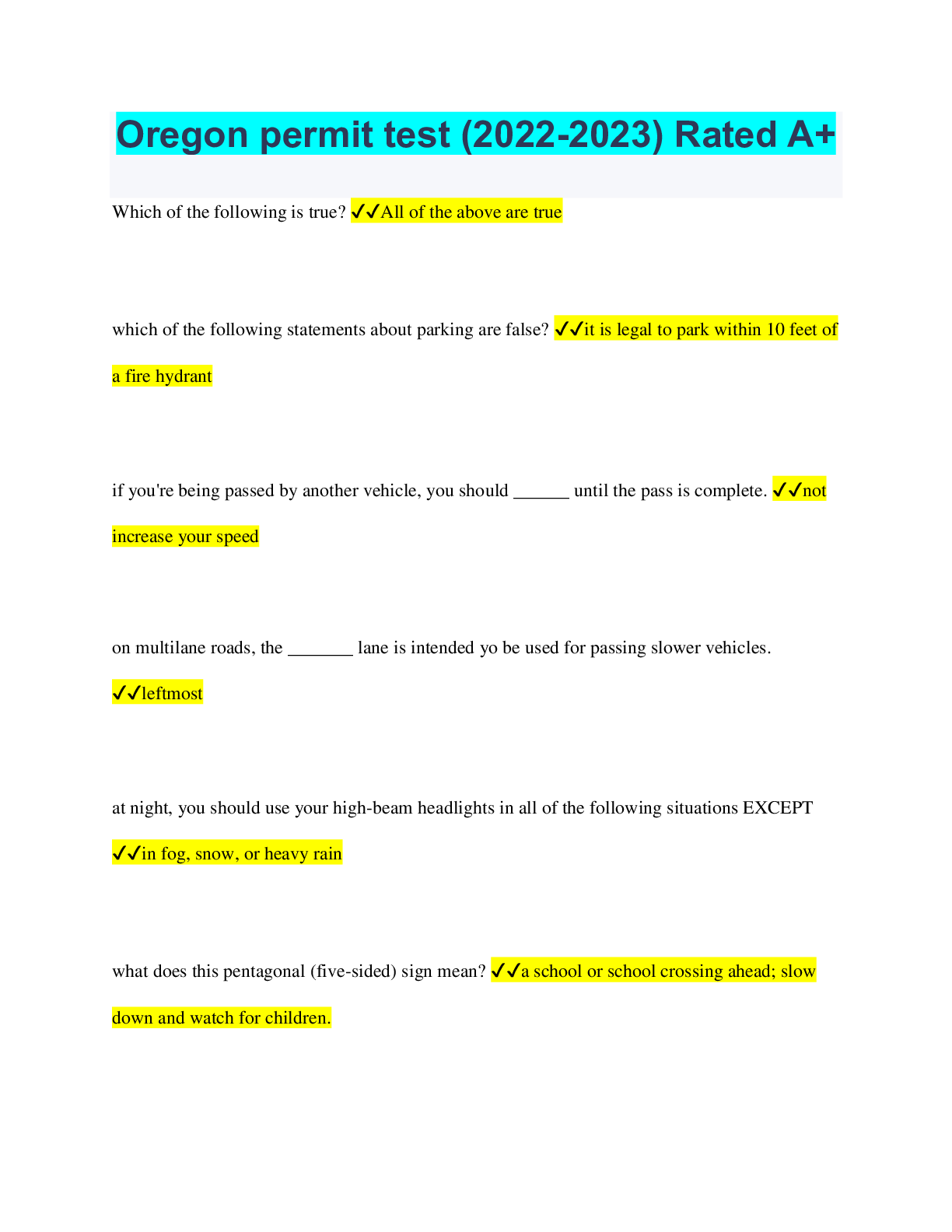
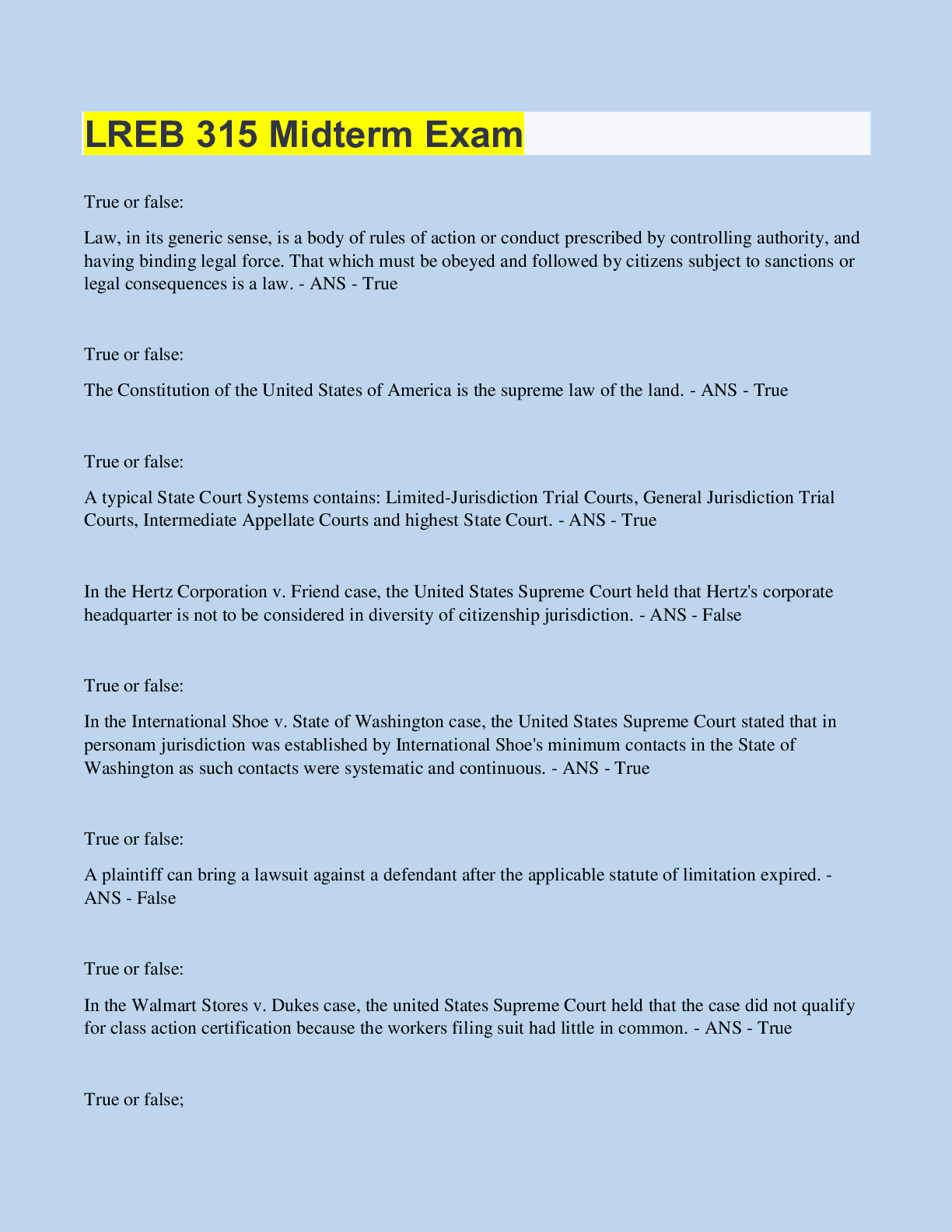
.png)
.png)
.png)
.png)
.png)
.png)
.png)
.png)
.png)

